Congo Red
Synonym(s):Congo Red;Direct Red 28;Direct Red R;Direct Red Y;3,3?-[(1,1?-Biphenyl)-4,4?-diylbis(azo)]bis(4-amino-1-naphthalenesulfonic Acid) 2Na
- CAS NO.:573-58-0
- Empirical Formula: C32H22N6Na2O6S2
- Molecular Weight: 696.66
- MDL number: MFCD00004028
- EINECS: 209-358-4
- SAFETY DATA SHEET (SDS)
- Update Date: 2025-12-10 09:00:29
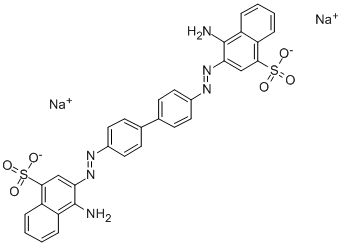
What is Congo Red?
Description
“Congo red” is not the name of a famous African explorer, but a dye that dates to 1883. It was synthesized by P. B?ttiger as a textile dye, but it subsequently became more important as a pH indicator. It colors aqueous solutions blue below pH 3.0 and becomes red above pH 5.0.
Recently, I. A. Buhimschi and co-workers at Nationwide Children’s Hospital (Columbus, OH) found a new use for Congo red. Taking a cue from Alzheimer’s disease researchers who found that the dye can be used to detect misfolded proteins, they showed that proteins in the urine of pregnant women who suffer from preeclampsia cause Congo red to change color. An Alzheimer’s researcher not involved in the study says, “The diagnostic potential is really big—depending on how specific it turns out to be for preeclampsia.”

Chemical properties
C.I. Direct red 28(Congo Red) is an odorless, brownish-red powder.Soluble in water; solubility =25 g/L at25℃.
The Uses of Congo Red
Congo red is useful for staining and visual detection of amyloid deposits. It inhibits the accumulation of the scrapie-associated, protease-resistant isoform of protein PrP without affecting the metabolism of the normal isoform.
The Uses of Congo Red
Dye, medicine (diagnostic aid), indicator, biological stain.
The Uses of Congo Red
- Congo red has been used as a histochemical stain for the quantification of amyloid deposits in brain tissues.
- It has been used as a cell wall inhibiting agent in fungus Cryptococcus neoformans.
- It has also been used to study microstructural details in the cell walls of raw potato and fried potato using confocal microscopy.
Definition
ChEBI: An indicator dye that is blue-violet at pH 3.0 and red at pH 5.0.
Biochem/physiol Actions
Congo red is a benzidine-based anionic diazo dye. It is a histological dye which binds to many amyloid proteins and is used for the quantification of amyloid β-peptide aggregation. Congo red also interacts with β-D-glucans, polysaccharides containing continuous β-(1→4)-linked D-glucopyranosyl units and some hemicellulosic galactoglucomannans.
Safety Profile
Human poison by ingestion with cardovascular effects. Experimental poison by intravenous route. An experimental teratogen. Experimental reproductive effects. An eye irritant. Mutation data reported. When heated to decomposition it emits very toxic fumes of NOx, SOx, and Na2O
Potential Exposure
It is used as an indicator dye, a biological stain; a diagnostic aid in medicine; and a dye for fabric and paper.
First aid
If this chemical gets into the eyes, remove anycontact lenses at once and irrigate immediately for at least15 min, occasionally lifting upper and lower lids. Seek medical attention immediately. If this chemical contacts theskin, remove contaminated clothing and wash immediatelywith soap and water. Seek medical attention immediately. Ifthis chemical has been inhaled, remove from exposure,begin rescue breathing (using universal precautions, including resuscitation mask) if breathing has stopped and CPR ifheart action has stopped. Transfer promptly to a medicalfacility. When this chemical has been swallowed, get medical attention. If victim is conscious, administer water ormilk. Do not induce vomiting.
Storage
Room temperature
Shipping
UN3143 Dyes, solid, toxic, n.o.s. or Dye intermediates, solid, toxic, n.o.s., Hazard Class: 6.1; Labels: 6.1-Poisonous materials, Technical Name Required
Purification Methods
Crystallise the dye from aqueous EtOH (1:3). Dry it in air. [Beilstein 6 I 342.]
Properties and Applications
|
Standard |
Acid Resistance |
Alkali Resistance |
Light Fastness |
Soaping |
Water |
||
|
Fading |
Stain |
Fading |
Stain |
||||
|
ISO |
1 |
3 |
1 |
2 |
2 |
||
|
AATCC |
1 |
3 |
2 |
1 |
3
|
||
Incompatibilities
Contact with oxidizers may cause fire and explosion hazard. Incompatible with strong acids; reducing agents.
Properties of Congo Red
| Melting point: | >360 °C (lit.) |
| Density | 0.995 g/mL at 25 °C |
| vapor pressure | <1 Pa |
| storage temp. | Store at +5°C to +30°C. |
| solubility | H2O: soluble10mg/mL |
| form | Powder/Solid |
| Colour Index | 22120 |
| pka | 4.1(at 25℃) |
| color | Red Brown |
| Odor | Odorless |
| PH | 6.7 (10g/l, H2O, 20℃) |
| PH Range | 3(blue)-5.2(red) |
| Water Solubility | soluble |
| λmax | 497nm, 488nm, 595nm |
| Merck | 14,2498 |
| BRN | 3894858 |
| Stability: | Stable. Incompatible with strong oxidizing agents. |
| Biological Applications | Detecting bacteria,protein folding disorders; treating dermatological disorders,neurodegenerative diseases,Alzheimer’s disease |
| Major Application | Waveguides, optical sensors, display devices, inks, fertilizer, pesticides, carbohydrates, treatment of pathogen infections, age-related macular degeneration |
| CAS DataBase Reference | 573-58-0(CAS DataBase Reference) |
| EPA Substance Registry System | Congo Red (573-58-0) |
Safety information for Congo Red
| Signal word | Danger |
| Pictogram(s) |
 Health Hazard GHS08 |
| GHS Hazard Statements |
H350:Carcinogenicity |
| Precautionary Statement Codes |
P201:Obtain special instructions before use. P202:Do not handle until all safety precautions have been read and understood. P280:Wear protective gloves/protective clothing/eye protection/face protection. P308+P313:IF exposed or concerned: Get medical advice/attention. P405:Store locked up. P501:Dispose of contents/container to..… |
Computed Descriptors for Congo Red
Congo Red manufacturer
JSK Chemicals
New Products
4,4-Difluoropiperidine hydrochloride tert-butyl 9-methoxy-3-azaspiro[5.5]undecane-3-carboxylate Indole Methyl Resin N-Isopropylurea N,N-Dicyclohexylcarbodiimide(DCC) MELDRUMS ACID 5-METHYLISOXAZOLE-4-CARBOXYLIC ACID Magnessium Bis glycinate Zinc ascorbate 1-bromo-2-butyne 2-acetamidophenol 9(10H)-anthracenone Erythrosin B, 4-Piperidinopiperidine 2-((4-morpholinophenylamino) (methylthio) methylene) malononitrile 2,4-dihydroxybenzaldehyde 3-(4-morpholinophenylamino)-5-amino-1H-pyrazole-4-carbonitrile Methyl 2-methylquinoline-6-carboxylate 2,6-dichloro-4-nitropyridine 4-Bromo-2-chlorobenzonitrile 2-(benzylamino)acetic acid hydrochloride 4-(tert-Butoxycarbonylamino)but- 2-ynoic acid 3,4-dihydro-2H-benzo[b][1,4]dioxepine 1-Phenyl-1-cycloprppanecarboxylicacidRelated products of tetrahydrofuran

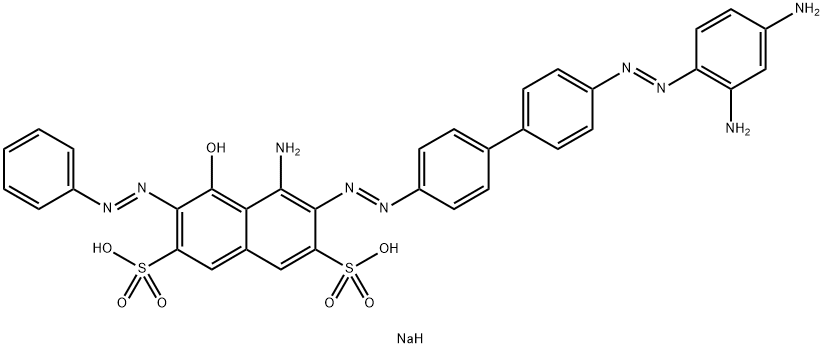
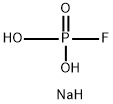
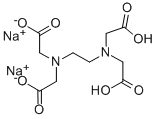
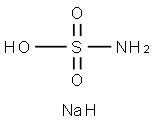

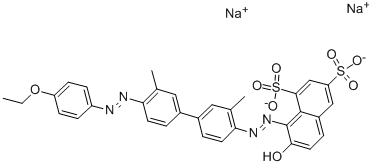
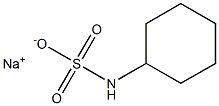
You may like
-
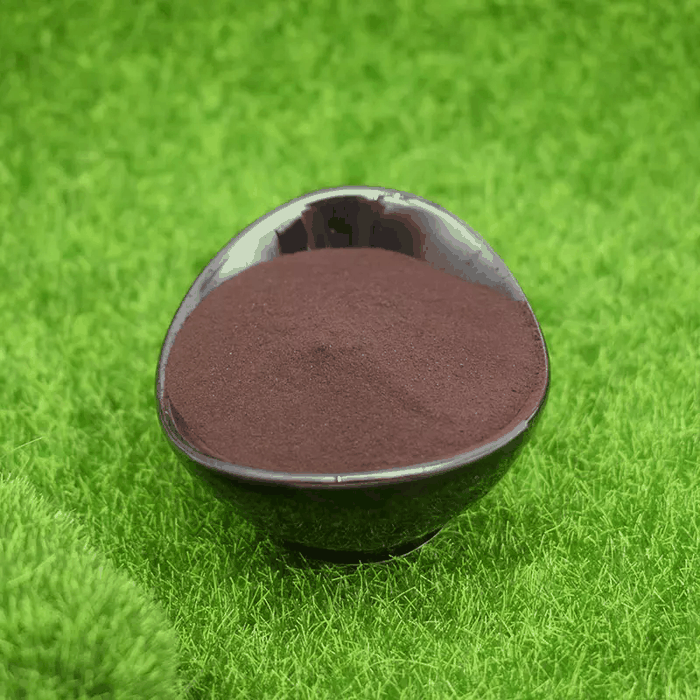 573 -58 -0 Congo Red 75 % 98%View Details
573 -58 -0 Congo Red 75 % 98%View Details
573 -58 -0 -
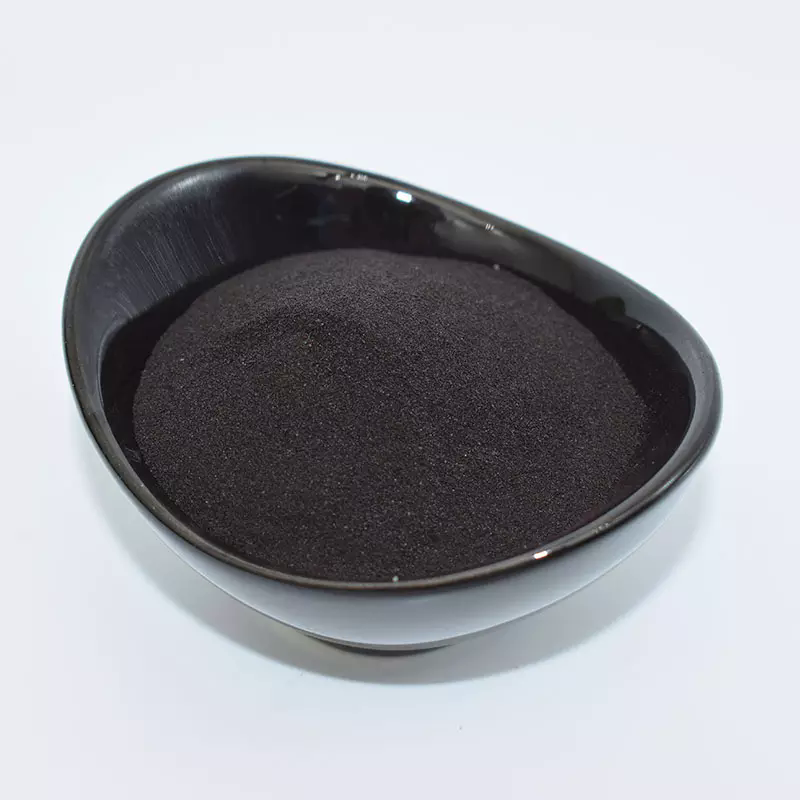 Direct red 28 573-58-0 98%View Details
Direct red 28 573-58-0 98%View Details
573-58-0 -
 Congo Red 4B 99%View Details
Congo Red 4B 99%View Details -
 Congo Red CAS 573-58-0View Details
Congo Red CAS 573-58-0View Details
573-58-0 -
 Congo red, papers CAS 573-58-0View Details
Congo red, papers CAS 573-58-0View Details
573-58-0 -
 Congo red, certified CAS 573-58-0View Details
Congo red, certified CAS 573-58-0View Details
573-58-0 -
 Congo red, indicator CAS 573-58-0View Details
Congo red, indicator CAS 573-58-0View Details
573-58-0 -
 Congo Red CAS 573-58-0View Details
Congo Red CAS 573-58-0View Details
573-58-0
